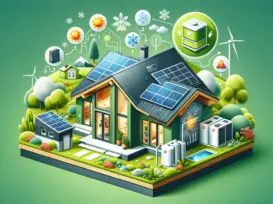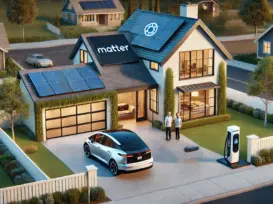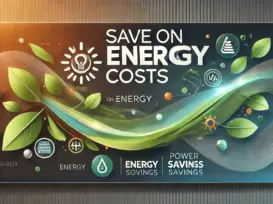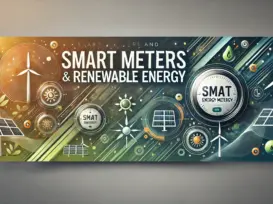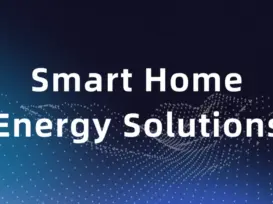Grus Home Energy - Renewable Energy
Exploring the Future of Sustainable Power: The Unstoppable Rise of Renewable Energy
Exploring the Future of Sustainable Power: The Unstoppable Rise of Renewable Energy
As the world grapples with the dual challenges of climate change and energy security, renewable energy has emerged as a beacon of hope, promising a more sustainable and resilient future. The shift towards renewable energy sources is now not just a niche trend but a global movement spurred by technological advancements, economic factors, and a growing collective environmental consciousness. This transition is redefining how we generate, distribute, and consume energy, and it has the potential to reshape the geopolitical landscape of the 21st century.
The term ‘renewable energy’ encompasses a diverse range of energy sources, including solar, wind, hydroelectric, geothermal, and bioenergy, all of which are replenished naturally and can be harnessed without depleting the Earth’s resources. These sources are increasingly seen as the solution to reducing our reliance on fossil fuels, which are finite and contribute significantly to greenhouse gas emissions. Notably, solar and wind energy have experienced the most dramatic growth, with the cost of photovoltaic cells and wind turbines plummeting, making them competitive with, or in some regions, cheaper than, traditional energy sources.
The benefits of renewable energy extend well beyond environmental preservation. Economically, they have the potential to create numerous job opportunities in manufacturing, installation, and maintenance sectors. Communities, especially in remote or underdeveloped regions, can gain energy independence and access to electricity that is both affordable and reliable. Moreover, renewable energy systems often have lower operational costs compared to fossil fuel-based systems, as they do not rely on fluctuating commodity prices.
However, the path to a fully renewable energy-powered world is not without challenges. One of the main issues is the intermittency of sources like solar and wind, which are not always available when demand is high. This necessitates the development of advanced energy storage solutions, such as batteries and pumped hydro storage, to ensure a steady supply of power. Additionally, there is a need for significant investment in energy infrastructure to transport electricity from renewable-rich regions to urban centers and industrial hubs.
The integration of renewable energy into existing grids also presents technical challenges. Grids must become more flexible and intelligent to handle the variable input from renewable sources. This requires substantial innovation in grid management, including the use of smart grid technologies and demand response systems that can adjust energy consumption based on supply availability. Furthermore, policies and regulations need to be aligned to support the growth of renewables, such as by providing incentives for clean energy investments or by imposing carbon pricing to reflect the true cost of fossil fuels.
Internationally, renewable energy is also influencing geopolitics, shifting the balance of power away from countries that have historically dominated the fossil fuel industry. It’s fostering energy independence and reducing the strategic importance of oil and gas reserves. As nations invest in their own renewable energy capacity, they become less vulnerable to external supply shocks and price volatility, leading to a more stable and secure energy landscape.
In conclusion, the unstoppable rise of renewable energy is a testament to human innovation and our collective desire for a sustainable future. While there are hurdles to overcome, the benefits—environmental, economic, and strategic—are too significant to ignore. As technology progresses and political will strengthens, we are likely to see an accelerated transition towards a world where renewable energy is not just an alternative, but the cornerstone of our energy system.
©2025 All Rights Reserved. Grus IoT Co.,Ltd.
